Hey, acne awareness month came and went and I almost never ever mention it or promote it.
Might you have wondered why?
Briefly, it’s because I have helped tens of thousands of people get clear skin (yes, without diets, pills, or expensive treatments).
After un-brainwashing them from the “Acne Awareness” propaganda, that is.
Clear skin is normal, natural, and desirable.
But we take it for granted. We don’t understand it.
We allow ourselves to be brainwashed into pathologizing pores, blackheads, lines, peach fuzz, lines, and the occasional pimple…
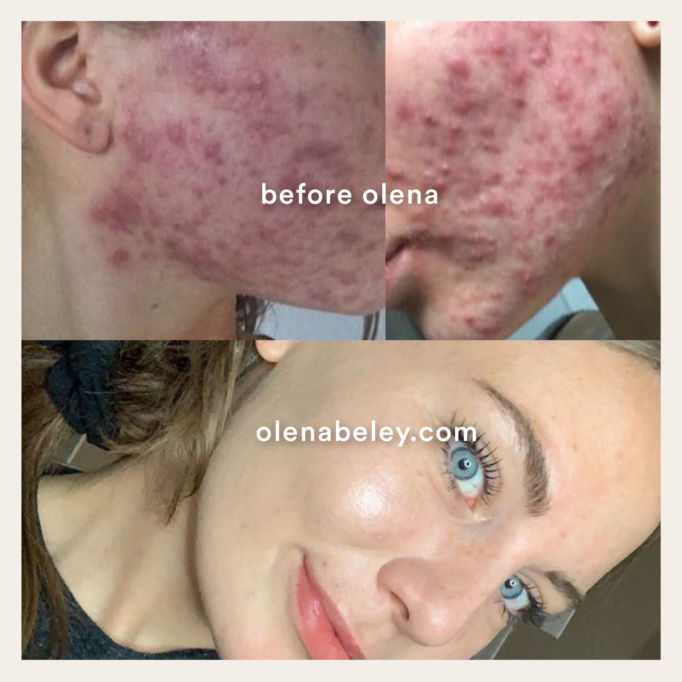
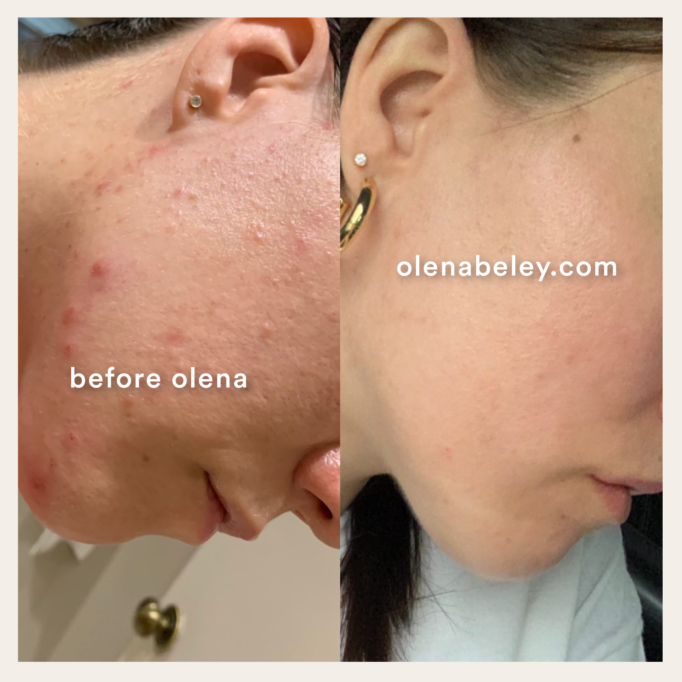
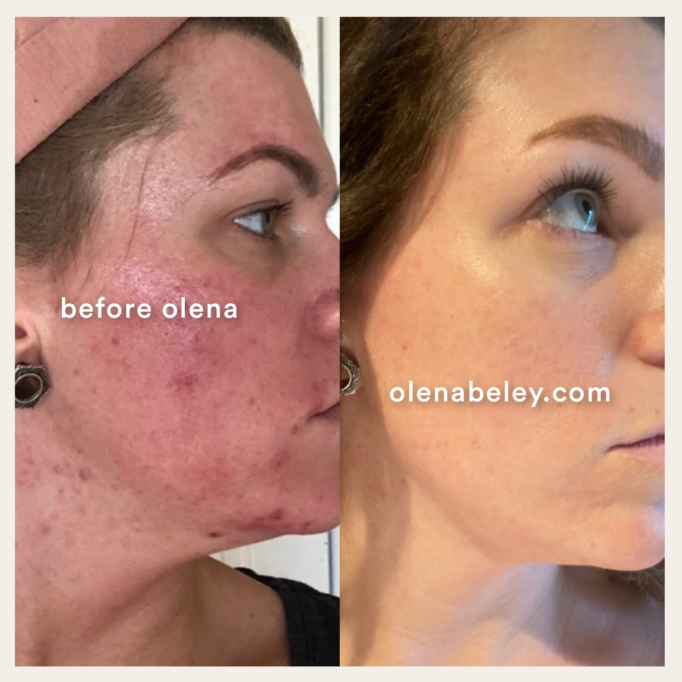
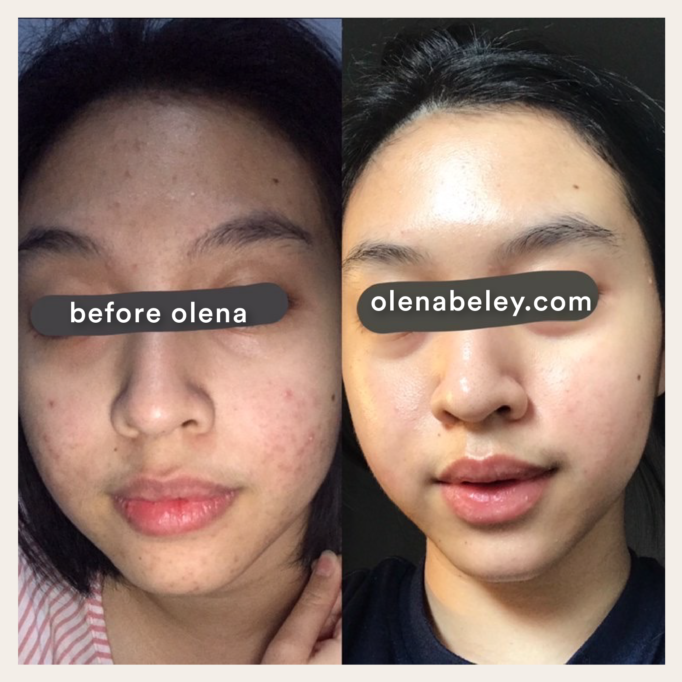
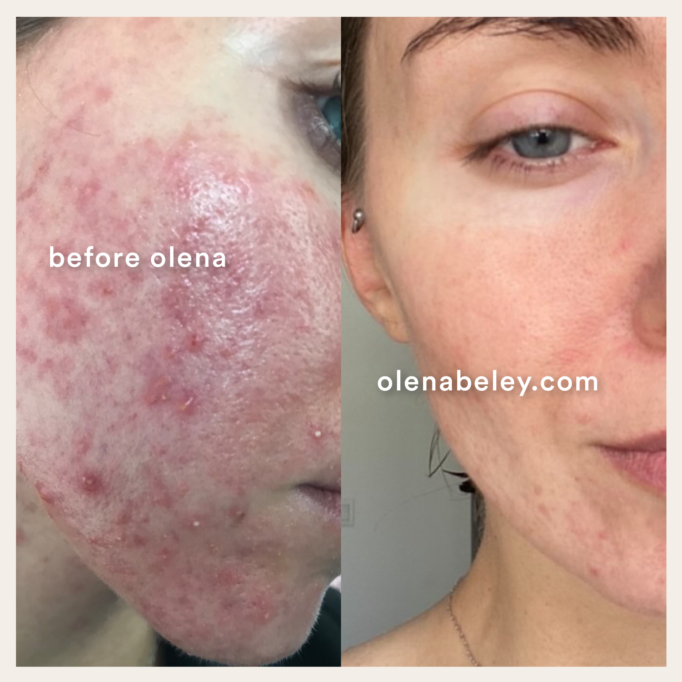
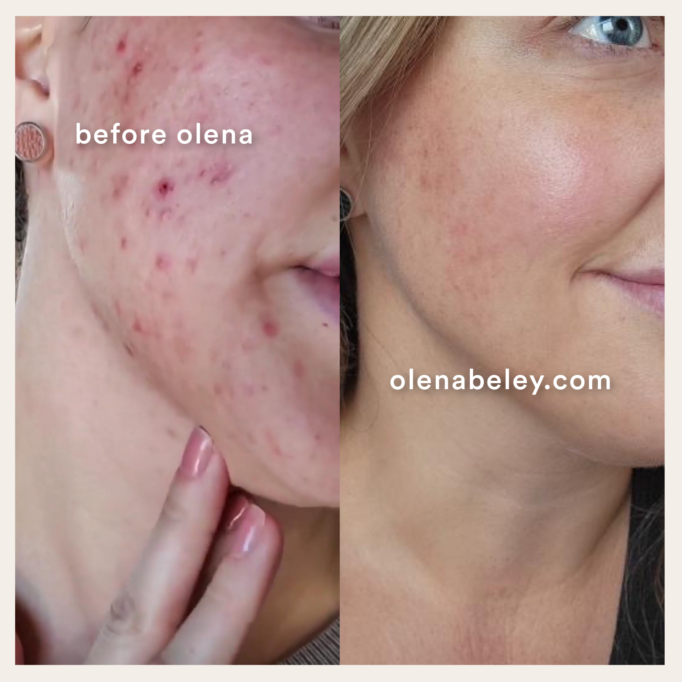
And as a result we have an industry THRIVING off of our ignorance and insecurities around the subject of skin health.
Not only is this industry thriving, it’s also indoctrinating young children to be proponents of damaging skincare products and practices and then to tell other kids that it’s normal. See TikTok for examples.
And what is the carrot at the end of the stick?
What is the reward for perpetuating lies?
It’s attention and even money.
Well, I’ll be happy to share with you why I adamantly abhor acne awareness, acne positivity, or the concept of normalizing acne (all really the same balls, from a different angle).
But first we’ll have to cover some big psychological concepts like psychological contagion, cognitive dissonance, and self-justification in order to get through it all.
I’d grab a glass of water or a coffee, because this is gonna be a long one.
I have had acne
Let’s start at the beginning.
I have had acne.
Twice.
I have to say this because somebody out there will inevitably think that I have not, and therefore that I just don’t understand acne or how it feels to have it.
I solved my own acne.
Twice.
Read about how I created my own experience of acne here.
I’ve helped humans learn to care for their skin from as young as 10 to as young as 65, from various ethnic backgrounds and countries around the world.
I have since solved it (along with rosacea, eczema, dermatitis, folliculitis, melasma) for countless other humans.
I’ve worked with children, mothers, nurses, entrepreneurs, pro athletes, famous people…People recovering from eating disorders, with diagnosed hormonal imbalances, and autoimmune conditions.
You name it, I’ve seen it.
I’ve learned a lot about the complexity of skin function over the years, and have poured over the nuances of skin care and its affects on the skin.
I know for a fact that anybody can have healthy skin after acne.
Most people whom I work with have skin so good now that you cannot even tell they’ve ever had acne.
Yet, I have even been accused by some “acne sufferers” that “You just want everyone to have clear skin, how dare you! Who do you think you are!”
Which may make you wonder, are some people trying to hold on to acne?
It’s hard to understand why anyone would want to avoid the solution and pretend like it doesn’t exist if you’ve actually experienced acne yourself.
I will help you understand as you keep reading.
Psychological Contagion
One morning in 1998, a Tennessee high school teacher noticed a smell of gas in her classroom, and began to feel dizzy and nauseous.
Some of her students began reporting the same symptoms, and feeling ill, so they were transported to the hospital too.
As the remaining students and staff watched them go, some of them started to feel sick too and that day, 100 people showed up in the emergency room with symptoms they believed were a result of gas exposure at the school.
According to Timothy F. Jones, lead author of the paper and deputy state epidemiologist at the Tennessee Department of Health, “It was not an infection, but it was certainly transmitted.”
After conducting extensive environmental tests at the school, the results were published in the New England Journal of Medicine concluding that there was no toxic source.
This phenomenon is known as mass psychogenic illness, where symptoms are passed from person to person among those who are visible to one another. Read the full article on this here.
Unzooming from this example, the results of research on contagion suggest that just like with viral infection, we may have little control over cultural infection and further spreading it without the awareness of the implications of our actions.
Someone might point out, “No, I’m immune to being infected with other people’s ideas, behaviours, etc.”
I’d look down at your outfit, and over at your bathroom counter to see just how untrue that is.
“It makes a lot of sense that if I want to be part of this group, I will think and act and behave — and in this case feel — like the rest of my group members,” said Thomas Sy assistant professor at California State University Long Beach.
We are highly impressionable, all of us.
We want to belong to our group.
The evidence shows that we inherit and transmit behaviours, emotions, beliefs and religions not through rational choice but contagion.
And now we have social media!
Enter Social Media
Social media is a tool for psychological contagion…on steroids!
Anyone stressed about their own condition can pass on conclusions or “solutions” they found under stress to a mass of people.
If the topic is really popular, the algorithm will promote it creating echo chambers on your feed.
If one bad practice ruins one person’s skin and is promoted on social media, the “virality” of it will consequently affect other people’s skin.
It works for every subject online and we are literally immersed in it. Even if we don’t go on social media, the virality can be passed on IRL.
Because of the scale of influence of social media, nobody is immune anymore.
The excellent podcast “Your Undivided Attention” explains this process thoroughly.
“Olena, are you trying to say that acne is contagious?”
The Island Of Kitava
Well, let’s consider the people on the island of Kitava, with ZERO incidence of acne.
Zero acne?! How can that be?
Most explanations centre around food. *Face palm*
But food doesn’t cause acne. I explain this in more detail in the Skin Queen™ course.
So what else might it be?
Well let’s consider our grandparents…
Do you recall any of them lamenting about their lost acne years? Their acne struggles? Their skin-induced anxiety and depression?
No? And why is that? They didn’t likely come from Kitava…
I hypothesize, that back then there was no acne awareness and therefore no exaggeration of this skin condition (and hopefully still isn’t on the island of Kitava).
People were not watching themselves on their phones, they were less exposed to representations of people out of their group (less tv channels, less comparison), and maybe they had other situations to deal with…
An occasional pimple came and went without the individual treating it as abnormal or unhealthy.
They weren’t connected to ideas (and lies!) from all around the world, needing to make sense of it all 24/7.
They didn’t have access to Sephora nor were they inundated by endless advertising and and horrible advice at the rate that we are.
They were not considered as consumers and users as we are today, and marketing wasn’t what it is today.
They were probably more active and less stressed (about their skin), what with fighting in actual wars and living through actual famines…too busy to spend hours a day obsessing over their pores, I’m afraid.
So is acne contagious? Not literally.
But the behaviours and opinions of an “acne-sufferer” might be VERY contagious.
We are social animals on social media, and very much like our monkey cousins; monkey see, monkey do.
This is not an insult, but a nod to our nature. We are homo sapiens, and we are a social/cultural species. I recommend this book on Sapiens.
We copy other people’s behaviours, ideas, narratives, whether consciously or not.
What if the people whom we copy are copying someone else?
What if the people whom we copy are just wrong?
What if the people whom we copy are lying to us—or to themselves?
What then?
These questions are totally serious, and not rhetorical by the way.
Have you noticed that every person’s acne story is a slight variation of every other acne story? It’s all the same-ish.
How can millions of individuals have the same experience of a skin condition?
And more alarmingly, how can millions of individuals use the same language to describe their experiences?
But then, why would anyone want to be a part of a group of acne-sufferers?
Great question, right?
But actually, it is in our nature to be part of a group.
It feels good not to feel alone with your doubts and uncertainties. But if the group’s beliefs maintain or worsen your condition it kind of defeats the purpose
Well, in these groups, people think they’re going to get answers. They hope that someone has figured it out.
The vast majority of people in these groups are genuinely willing to help the other members of the group…even though they can’t even help themselves.
So the ideas people get there, as with cultural contagion, are not necessarily rooted in evidence-based reality.
So then these ideas get repeated and rehearsed and cemented into an identity.
The belief in these ideas becomes the key to the cohesion of the group.
The validity of the ideas becomes unimportant.
They’re mostly just assumptions and guesses…
Statements without logic or evidence are just assumptions and guesses.
All artificially reinforced by the approval of the group. If the group was providing good information it would not thrive but would tend to dissolve the more people get results and feel better.
Cognitive Dissonance
It is very difficult to hold two conflicting ideas, attitudes, beliefs, opinions, or positions simultaneously.
We don’t like contradictory ideas, oh but myriad contradictory ideas you’ll find about acne!
Like, acne is ugly and acne is beautiful.
Like acne is normal and acne is not normal.
Like acne is a life-long struggle and acne is a passing phase.
Your brain can’t have it both ways— it’s either ugly, unwanted, temporary or it’s beautiful, normal, and forever.
In the field of psychology, cognitive dissonance is the perception of contradictory information. Read this incredible book about cognitive dissonance.
When we feel cognitive dissonance, it can come with mental discomfort and even full blown anguish. Our species really doesn’t like this feeling, and the discomfort makes us resolve cognitive dissonance by making a choice.
We often get fully behind one of the contradicting beliefs, even if that belief is extreme or inaccurate or irrelevant.
And we use the mechanism of self-justification to convince ourselves of the belief that feels most comfortable.
We all do this on a countless number of subjects (politics, nutrition, family disputes, etc.)
After getting behind one of the ideas, we will often have to ignore all new information to maintain consonance. And that is what we call confirmation bias.
Because who likes admitting that they’re wrong?
This is how it might look inside the mind:
If clear skin is beautiful, then acne isn’t, right?
That’s not a very comfortable idea if you still have acne.
Here is a train of thought than can cross one’s mind:
You’ve clearly tried everything possible to get clear skin, and nothing worked, so that means that there’s nothing left to try, and that acne is not curable.
Which means you won’t experience clear skin, which means what you have is not beautiful. You’re not beautiful.
This is the mental process that one might go through, not reality, nor is it my personal position on acne — I don’t give it a value judgement like beautiful or ugly, I simply accept it as information.
Beauty is a cultural concept, its criteria are not an expression of an objective fact. Beauty standards evolve with culture, like fashion. In the 17th century in France, noble men were wearing wigs, heels and face powder…

Making acne about beauty is just one more useless tangent that is irrelevant in healing from acne.
Back to you feeling that you’re not beautiful.
This might be hard for you to get behind because you want to attribute positive qualities to yourself, nobody wants to feel ugly. You forget that acne is not you, acne is something your skin is experiencing, like an innocent blister…
What must you do to convince yourself that you really are beautiful if acne is ugly and you have it?
Well, you’ll likely have to convince yourself that acne is normal, that everyone has it, and that you just have to live with it forever. You’re just one of the unlucky many who got it. It’s not your fault, after all.
And you’re beautiful and brave to be existing with it…
I smile with acne.
“I smile with acne” is something that I’ve seen on the internet as the war-cry of cognitive dissonance and self-justification.
There are more and more “acne influencers” popping up with absolutely absurd captions that I don’t dare read to you because they make no sense.
The insinuation is that people with acne are apparently portrayed as sad, so we need to see people with acne smiling in the media?
This is so perverse.
I smiled and laughed and lived my life with acne while disliking acne and dealing with my feelings of discomfort and shame, because there wasn’t a ridiculous narrative trying to brainwash me into lying to myself back then.
Nobody gave me any medals or wrote any articles glorifying my impressive bravery at living my life with some pimples, nor would I ever want that. *shudders at thought*
And actually many people have acne.
Most people have it.
No, it’s actually normal.
A total distortion of reality.
In my high school I remember one girl out of 1500 that had a full blown case of acne. The rest of us got the occasional pimple, while most other kids had near flawless skin.
Don’t believe me? Walk into a subway train and count how many people have acne.
Walk into a grocery store and see how many people have acne.
Acne is beautiful.
Clear skin isn’t normal, it’s rare and for special people only.
Clear skin is unattainable.
Clear skin requires diets, pills, expensive treatments.
And I’ve already tried everything and nothing works.
It’s too hard.
Clear skin doesn’t exist.
This is the mental gymnastics of cognitive dissonance, where actual humans with acne convince themselves of a lie to cope with the acne that, if they were honest with themselves, they never wanted and never enjoyed.
Alas, the media has helped coddle and validate this strategy by glorifying those with a self-created skin condition.
It is self-created because of the marketing around skincare, the spread of false information about skin health, and therefore, without even knowing it, people compromise their skin by using the wrong products, or maintaining damaging skincare habits.
Self-created…like a blister from an uncomfortable shoe.
- Do you like blisters? No.
- Are they uncomfortable? YES!
- Do they make you special? NO!
- Do they make you ugly? No!
- Are blisters themselves kinda ugly? Sure, sometimes.
- Are they normal? Only when wearing uncomfortable shoes for an extended amount of time.
- Are they a disease? No.
- Do they say anything about you? No, just information about your shoes or style of walking.
- Do blisters heal? Yes.
- Do we need a month dedicated to them? No.
Why don’t we have a blister awareness month? Because they’re not on our faces and the solution to them doesn’t require much learning, does it?
Can you imagine a parallel world with its “blisters are beautiful” groups on social media?
It would look very strange and you would be tempted to say, “Get your shoe size right guys, don’t fall for the tight shoe fashion and those slippery foot creams you find in Shoephora”.
Identifying with the Problem
For some people, Acne Awareness turned into an acne identity. There’s the “acne-sufferer”.
When I started writing about acne, I actually didn’t understand that combination of words.
Sufferer of acne. Wtf?
I know where I came from, and with the family history I was raised with, uttering the words, “acne-sufferer” felt embarrassing and uncomfortable for me.
It would sound like calling myself a blister-sufferer? A tooth-decay-sufferer? A sunburn-sufferer?
I think I’m pretty lucky that I never fully identified with acne, and I believe that it was largely why I was so adamant about figuring it out without ever resorting to Accutane, a useless solution that is spread on acne groups.
My position on Accutane is another story for another day. 😉
But what happens to those that not only self-justify their way into a position that doesn’t make any sense, but also IDENTIFY with the problem, and build communities and even businesses around it?
Well, psychologically speaking it requires A LOT of mental effort to get out of this cognitive dissonance ditch and change your mind.
Most people are unwilling to give up their beliefs, raised to the rank of identity. The cognitive price to pay is very high.
In a flat-earth documentary on Netflix (Behind the Curve), the main Flat Earther described Jim Carrey’s character in the Truman Show:
“The big reason the lead character left, when he discovered his whole world was fake was because he had nothing to lose. Jim Carrey was going to inevitably leave because there was nothing for him inside. Compare that to anyone else, let’s say the mayor of that town. Let’s say he got a sail boat and got to the edge. He’s got limos, mistresses. He’s got money, a pretty cushy life. Would he open the door and face the devil you know vs. the devil you don’t know? No.”
And the producer asked him, “Wouldn’t you say, in a sense, you’re like the mayor of Flat Earth?”
Because our species doesn’t like uncertainty we tend to downgrade complex questions into simple answers.
The question of identity, “Who am I in this world?” can sometimes result in the answer “This struggle.”
The identity is supported and nurtured by a community, friends, and then a business.
The struggle becomes a big part of your identity, world-view, and you have things to GAIN from it.
Then how likely are you to change?
If you have too much to gain from acne, and too much to lose from clear skin, why would you even want clear skin anymore?
This answers the question of why some people willfully ignore the solution to acne.
Some people might find themselves as the mayor of “Acne Awareness”.
Who is acne-awareness helping?
Acne awareness is definitely helping someone: the companies that sell terribly-formulated skincare products that create the so-called “normal” acne and the influencers who gain clout and money for promoting these products and the resulting skin condition.
Please see how many of them have Banish discount codes.
You do not benefit from being aware of acne, unless you want to create an entire experience and identity around acne.
Giving too much attention to your skin can turn into an obsession, and later an identity. Which is counterproductive to achieving healthy skin.
The Antidote to Acne Awareness
I’d argue that the antidote to acne awareness is clear skin awareness. Few people actually know what clear, healthy skin is, how it functions, and how to support and protect it.
In other words: education.
What idea might a 13 year-old benefit from then?
That skincare is a skill (like math, confidence, communication, emotional resilience, tennis etc.)
Nobody is born skilled, we become skilled and competent over time.
Skills require knowledge and practice.
The young girl will have to learn about it, practice, adjust, learn some more, and treat her skin the way it deserves.
There is no quick fix, but there is also no curse! YAY!
Acne doesn’t make you special or different, just as a blister on your foot doesn’t make you special or different.
If somebody comments on it, it’s because they haven’t yet learned the skill of self-love and self-regulation and are taking out their well-practiced self-loathing on you.
You are responsible for becoming so secure and competent, that silly comments won’t have any effect on you.
You are responsible in helping yourself, and you can do it.
Clear skin is normal, healthy, and achievable. It’s okay to want clear skin.
Just look for examples of it being possible.
Learn from the best.
- Doesn’t that sound a hell of a lot more empowering?
- Doesn’t that sound like this kid is gonna set herself up for success?
- Doesn’t it sound like this kid will probably not fall for marketing trends and tricks and spend way less money on useless products?
- Doesn’t it sound like this kid won’t ruin her relationship to food?
- Might this kid have an easier time getting clear skin and maintaining it?
- Might this kid be empowered to solve her own problems instead of blaming her body, her food, her hormones or going through horrible self-justification (ie. lying to herself) to preserve her sense of self?
Competence vs. Victimhood
But who wants an empowered 13 year old?
She’ll make for a terribly picky consumer, with less buying, trying, experimenting…
Maybe she’ll actually do something worthwhile with her life instead of endlessly posting selfies and complaining about her skin condition in the caption.
Kids LOOK UP to people.
And today they admire those who have large followings…regardless of the message that is being sold.
Literally, some incompetent humans are praised for showing up. Just for showing up.
Influencers may have the competency of building an audience. Great!
But it doesn’t mean that they understand skin health or skin care, or have any expertise about it whatsoever.
They could be destroying their skin left and right, and sharing with you how to destroy yours and they’re seen as beautiful, trustworthy, and aspirational.
Victimhood sells.
“If it bleeds, it leads” and, “If she cries, they buy”.
Instead of rewarding people for the wrong reason, might we try rewarding them for verified competence?
Instead of rewarding people for just showing up, might we try to rewarding them for actual effort and good work?
Instead of rewarding those who share misinformation, might we reward those who take time to acquire and share real knowledge?
Instead of rewarding those who prey off of your suffering, might we reward those trying to genuinely empower their audience with real solutions that end it?
And no, acne awareness is not empowering in any way, shape, or form. Read the captions if you don’t believe me, they’re all.the.same.
The epitome of cultural contagion.
“I believed this until just recently when I found your page. I felt like I had to constantly work SOOOO hard to have this faux confidence cause I couldn’t possibly let people know I absolutely hated my skin.
You pretend so much to love it and accept it that you end up in the trap of hiding your struggles with it and not seeking help because then people will find out that you want to change and you were faking.
And then you feel like well now I can’t get rid of it anyway so let me just not do anything. Which makes everything worse.” — Janina J.
A society that promotes, values, and indoctrinates victimhood is shooting itself in the foot.
Is Acne Awareness spreading acne?
I have the real pleasure of working with people on their skincare routines and hearing their detailed “acne stories”, some of which span decades.
Among them, there was an alarming amount of women who started out with clear skin, but followed people with “acne positivity” accounts.
They scrolled and scrolled, and guess what?
They caught the acne bug.
They assumed that the occasional pimple that was a sign of normal, healthy, functioning skin was ACNE.
They started treating their skin like the people they were following, and reciting myths like, “It’s my hormones, it’s my diet, it’s my genes.”
In the end, the spell was cast.
They looked like the people that they were following.
Why? Because they weren’t aware what clear skin looks like, therefore they didn’t understand that they already had it.
I will always remind you guys that you can have healthy, human skin, that happens to be clear.
You do not have to lie to yourself, you don’t have to pretend that you like acne.
So a big resounding YES, Acne Awareness spreads acne.
Sadly, studies show that sharing about suicide increases suicide.
Just as sadly, mental health awareness on social media leads to mental health problems.
Because MISINFORMATION and MISPERCEPTIONS can’t and don’t help anyone. Neither does the the quantity over quality approach to content creation.
What we intuitively see as a solution isn’t always the right solution.
It isn’t until we devote time into learning the ins and outs of a subject that we realize that.
I’m currently going through one psychology book after the next and I’m learning that a lot of what we think is true in psychology, is actually counter-intuitive and untrue.
The foolproof solution to any problem or misperception is MORE knowledge. But that takes time, and lots of it…
But Acne Awareness Fights Acne Stigma And Shame!
How? By spreading misinformation about skin, food, skincare, and even psychology?
Strangely, and totally counterintuitively, shame has a purpose!
According to Daniel Sznycer, social psychologist and assistant professor in the Department of Psychology at University of Montreal, “the function of pain is to prevent us from damaging our own tissue. The function of shame is to prevent us from damaging our social relationships, or to motivate us to repair them.”
It is a normal human response to feel ashamed when breaking a social norm, rule, or law.
According to Sznycer, “shame makes you care about how much others value you, and motivates you to avoid or conceal things that would trigger negative reevaluations of you by others”.
Acne can cause us to feel physical pain as a signal to prevent us from damaging our own tissue, and shame as a signal to prevent us from damaging our social relationships.
And that’s okay.
There was a time when:
- lying or spreading misinformation
- preying on the weak
- selling poor quality merchandise
- and self-obsession
caused people to feel the discomfort of shame.
Kinda think that total shamelessness just like excessive shame isn’t really useful.
Like after a night of heavy drinking, you may have done and said stuff you regretted…But imagine you felt no shame and remorse the next day?
Imagine you damaged your skin unknowingly for months, years, or decades …but imagine you felt no shame and remorse when you found out?
Shame can help us take responsibility, change, grow, become better and more resilient. It can be a catalyst.
We can’t just skip over negative emotions and pretend like they do not exist.
Nor should we skip over our negative actions or habits and pretend like they do not exist.
“Maybe I’m doing something that isn’t in my best interests?” is a question one might ask themselves with enough self-awareness…and possibly, shame.
Final Thoughts
People don’t seem to grasp the fact that today’s habits will lead to tomorrow’s results, in any area of life.
But given the biology of skin, it is more accurate to say that the habits of the next three months (or a decade or two) will eventually lead to specific results.
If you spend your life skirting responsibility, shifting blame to phantom factors, lying to yourself, it’s only going to lead to some weird delusional reality. See January 6th, 2021 in the United States for an excellent illustration.
If you spend your life learning to depend on yourself, taking responsibility, courageously facing and solving challenges, being honest with yourself and others, it’s going to lead to success in virtually every area of your life.
We do not need to accept our mistakes as our identity.
Can we please invest in our knowledge?
Can we please be okay changing our minds?
Can we please think critically and not accept myths as facts?
Can we please surround ourselves with examples of what’s possible?
Can we please all become competent, self-reliant, and SMART AF Skin Queens?
It’s just a little dream I have.
Share your thoughts on this in the comments (especially if you’ve actually gotten through this whole article lol).
Love & Logic,
Olena
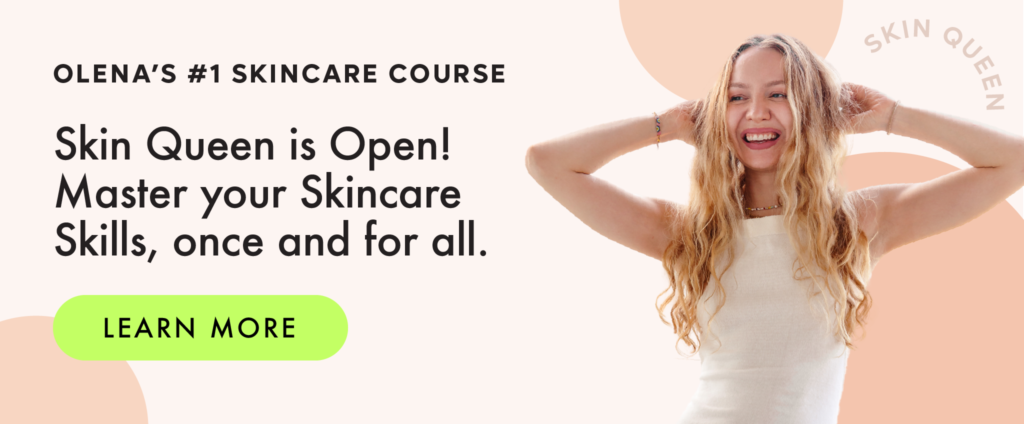
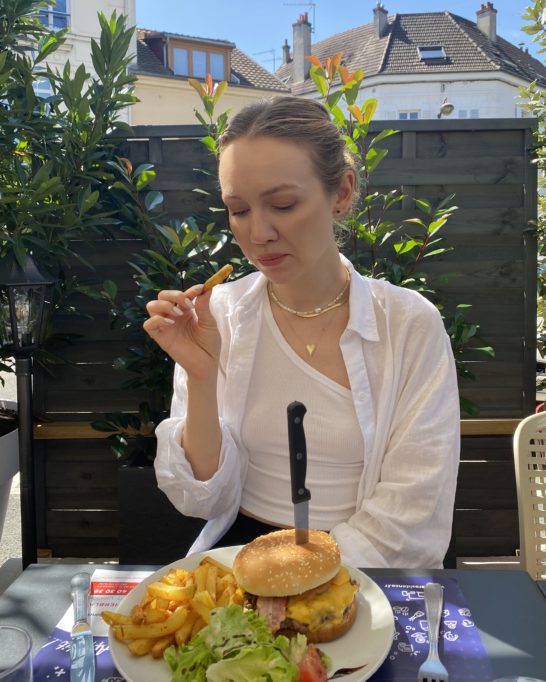
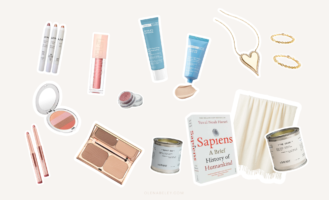
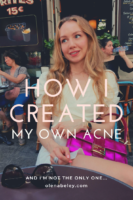
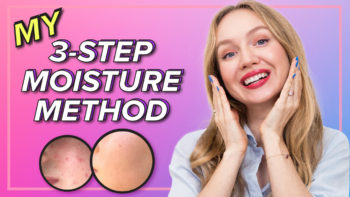







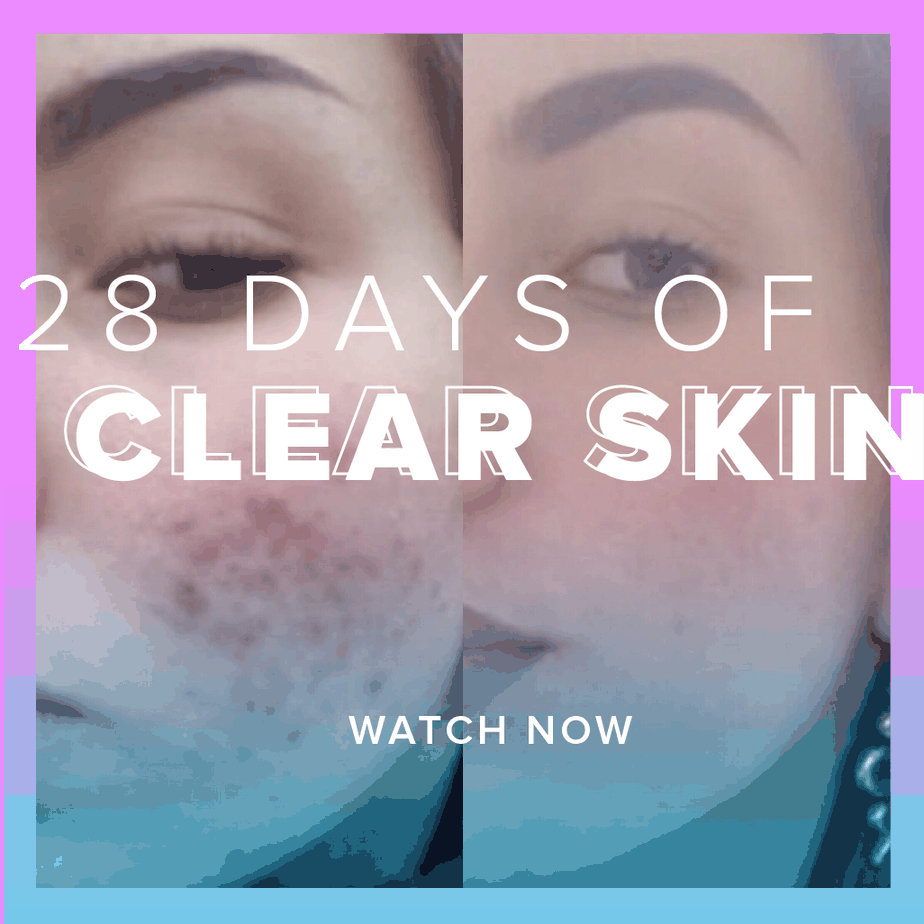
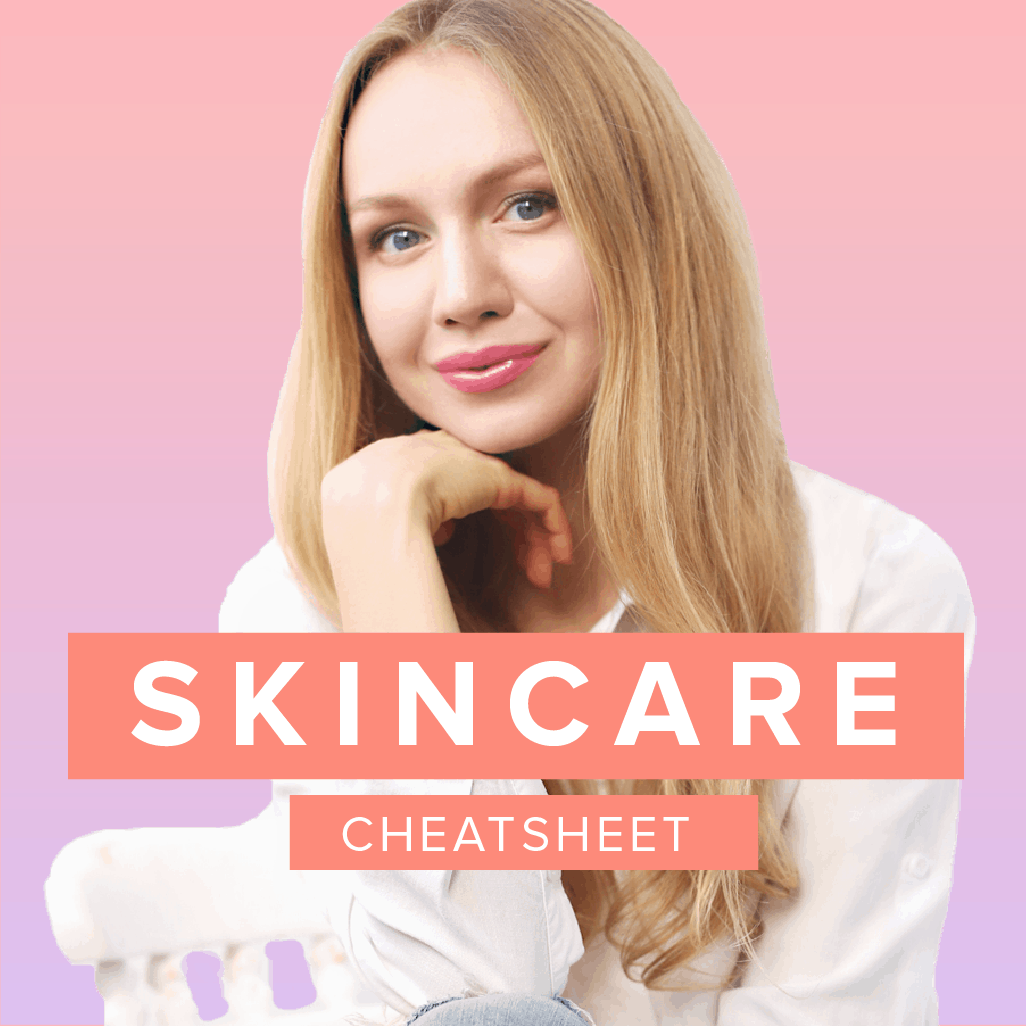
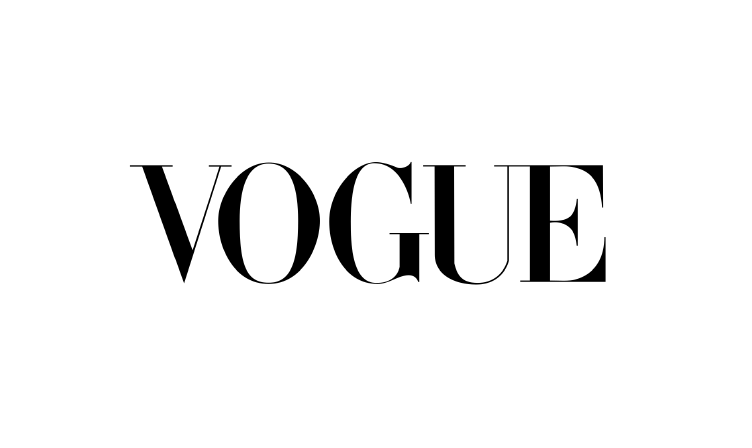
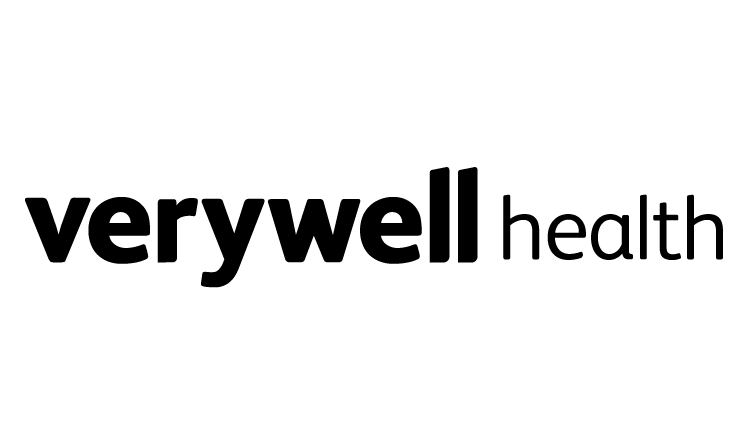
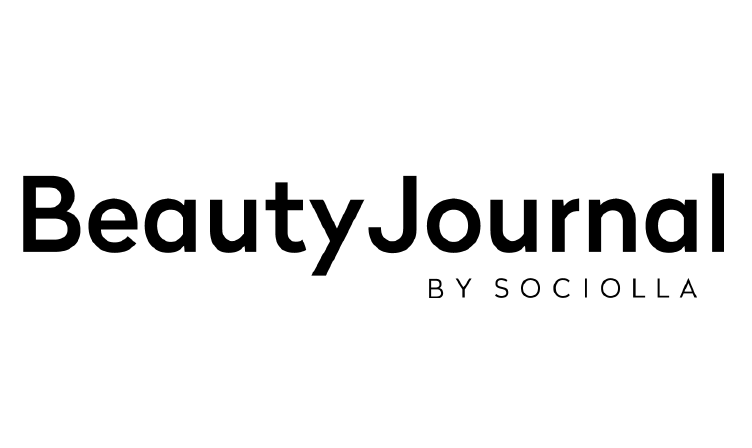




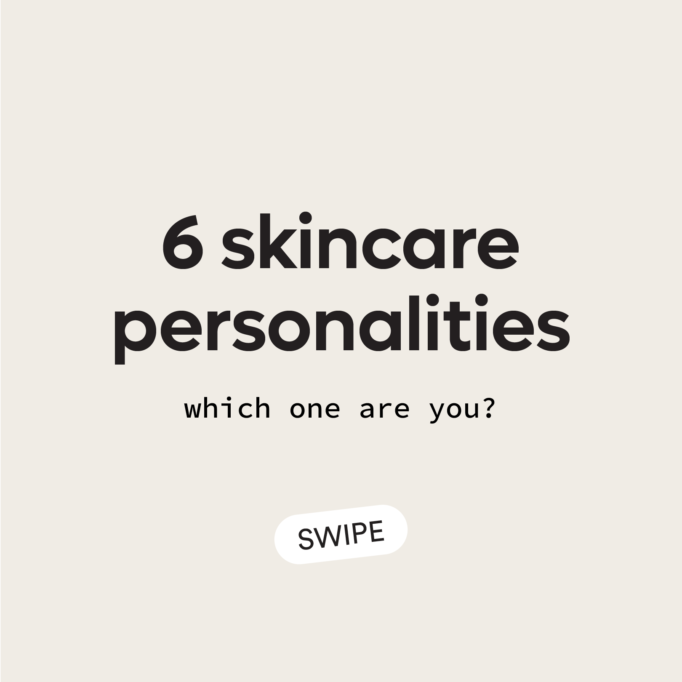
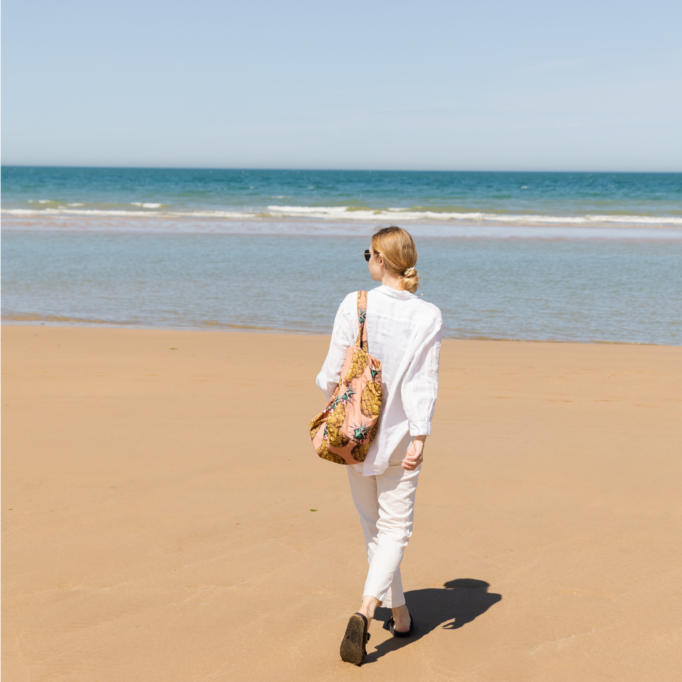
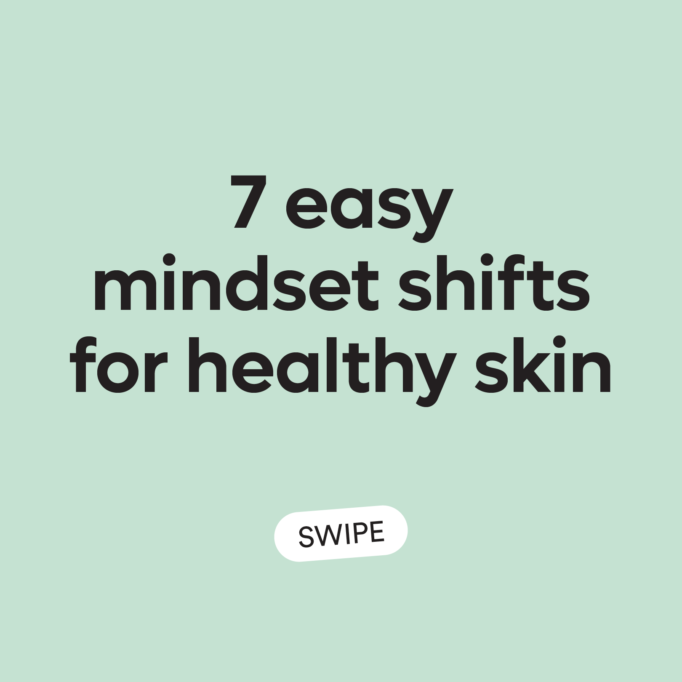

12 Responses
Olena this is so brilliantly written and needs to be read and understood by everybody!!!!!!! I am so happy I found you and your page. I just threw out an entire medicine cabinet full of acne products thinking I was an acne sufferer when really, I would just was experiencing the occasional pimple from time to time and my skin is actually NORMAL, healthy skin. All hail the skin queen
Hi Rebecca! Aw yay, so happy to hear that you appreciate your normal, healthy skin! Thank you so much for reading…It’s been something I have written and rewritten for months, and I’m glad that it’s finally out. I think it’s important to understand the deeper implications of these seemingly innocent movements so that we don’t fall victim to them. Thanks again for your feedback! 😀
This is the best article about acne I have ever read. It is just crazy that your logic and view ist such a controversy in the “acne community” and your article explains so well why that is.
Thanks love! Yeah, the person who benefits the most from spreading acne is not gonna be very amused by what is written here…
Discovering your page 3 months ago litteraly changed my whole perception of acne and today I can say that my skin is flawless and more importantly I have so much more mental space available for way more important matters. I used to spend so much time focusing on my skin and so much money on useless products. Also, I completely destroyed my relationship with food to the point of loosing my periods and avoiding diners with friends. I started to occasionally drink milk again and eat charcuterie and surprise : no pimple! I feel so much more fulfilled and happy because now I feel free. I feel like a normal human being, with normal skin and with a normal diet. Also, I read some of the books you recommended on psychology and neuroscience. So, not only your content helped me with my skin but it helped me with my whole perception of life in general. Eventually, I think that I needed to make the mistakes I made to growth and to come across your content (on Instagram). THANK YOU for all the free and eyes-opening content you put out there ! This article is brilliant and everybody should read it
Wow Alice, what a lovely message to receive! I’m so happy that you’re out the other side with all that perspective!! Thank you for sharing your experience, I hope others can learn from it!
The best part of this is that you can replace “acne” with almost anything and it still applies. Humans get comfortable with their issues and it gives them some weird sense of identity and it’s creating weak unaccountable people. What you focus on is what you get.
Thank you Olena.
Totally agree with you Lyndsay! This is just our psychology, and it’s important to be aware of it so that we can live lives outside of our seemingly all-consuming issues.
I’m so glad I found your page because I was falling deep down the “internet acne community” rabbit hole for a few months and it completely destroyed my skin; I went from annoying pimples here and there to painful cysts all over my face. I’m not ashamed because I didn’t know better but I regret it and I would have to be ashamed if I did it again. I’m now using benzoyl peroxide to repair the damage, but once my skin clears I hope to gradually stop the benzoyl peroxide and just maintain a good consistent skincare routine based on your advice. Please keep doing what you’re doing!
I feel you! And there’s definitely no need to feel ashamed about it — it’s how I destroyed my skin when I was like 19? FORUMS lol. Part of the fun of learning!
Re-reading again and again. There’s no one else in the community like you. I find new appreciation for your work and words every time I visit your pages. Thank you!
I really appreciate that Bari, thank you for taking the time! 🙂
Comments are closed.